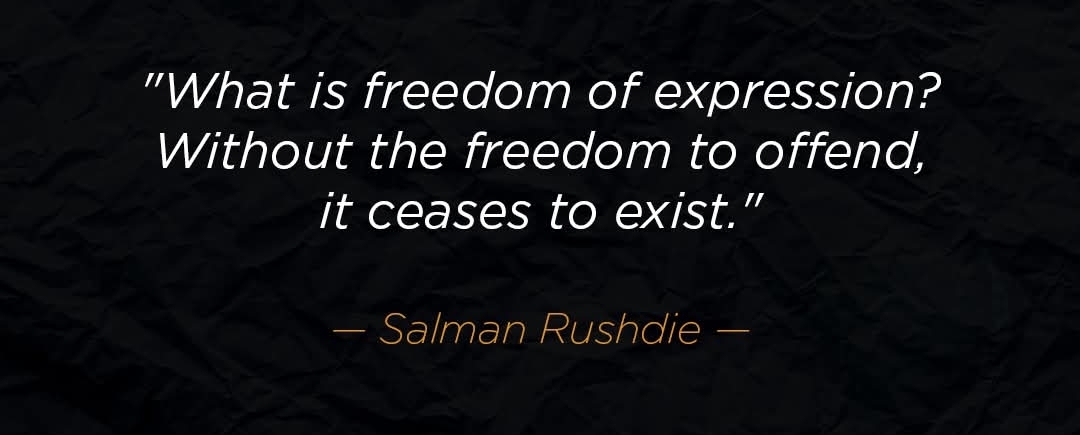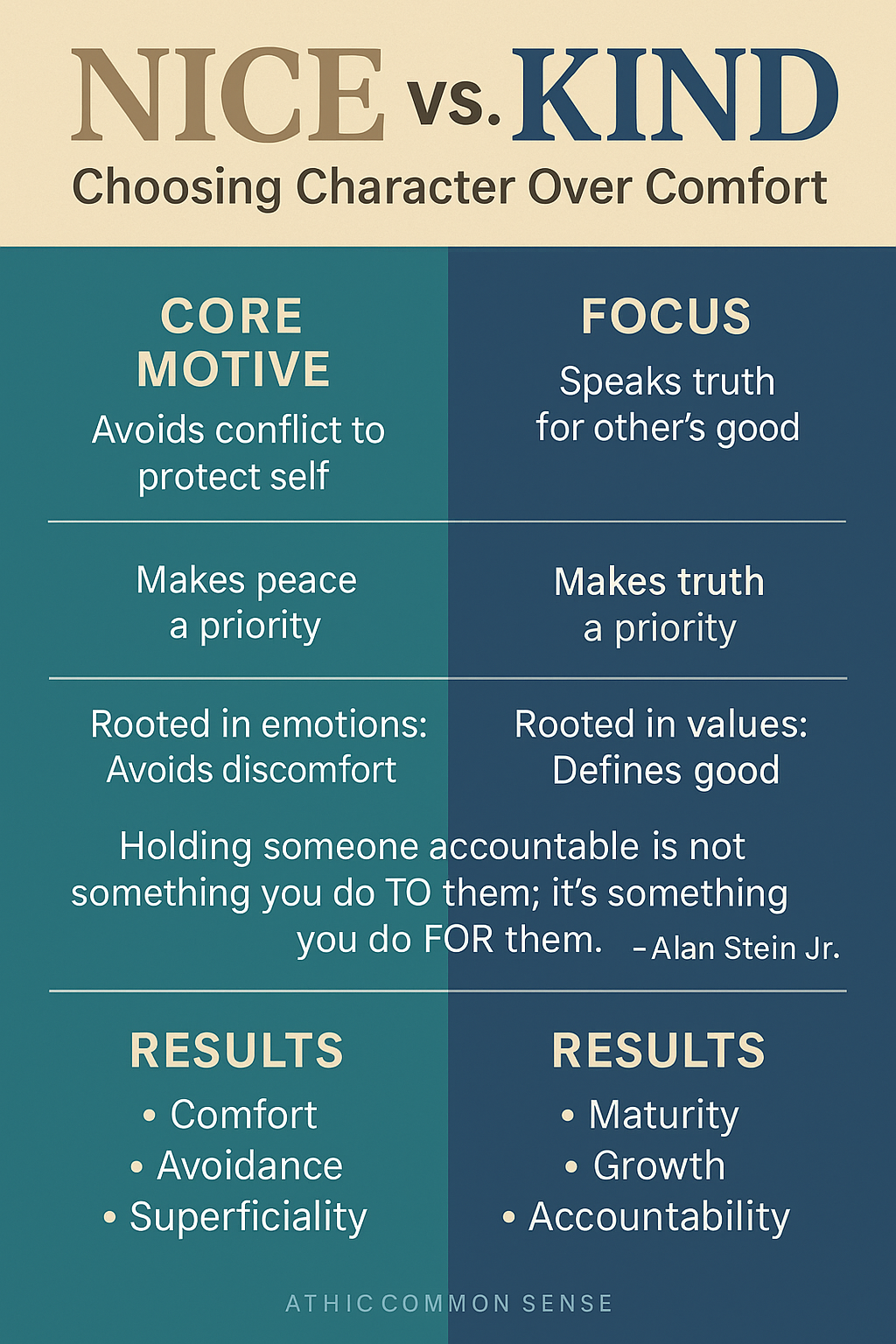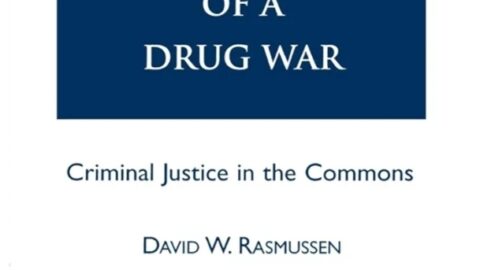Introduction: When “Nice” Becomes a Lie and “Kind” Becomes Courage
In modern culture, the phrase “Be nice and don’t hurt anyone’s feelings” has become a moral maxim—yet it masks a deeper problem: emotional fragility masquerading as virtue. “Niceness” today often means suppressing truth to preserve comfort, while kindness is mistaken for cruelty simply because it challenges ego or emotion.

This article explores:
- The vital difference between being nice vs. being kind,
- Why emotional reasoning has hijacked accountability,
- And what we can do—personally, relationally, and culturally—to reclaim truth, growth, and responsibility.
The Core Distinction: Nice Is About You—Kind Is About the Other Person
Being “Nice”
- Avoids conflict at all costs
- Seeks approval and peace (even at the expense of truth)
- Is based in self-protection: “I don’t want to upset them… or be disliked.”
- Often leads to enabling, deceit, and silent resentment
Being “Kind”
- Is grounded in truth, love, and moral courage
- Seeks growth, not approval
- Holds people accountable with grace
- May cause temporary discomfort—but leads to lasting maturity
“Holding someone accountable is not something you do TO them; it’s something you do FOR them.” – Alan Stein Jr.
Emotionalism: When Feelings Replace Facts
Today, many confuse their emotional response with truth. This is a result of decades of cultural messaging that:
- Elevate subjective emotion over objective principle
- Define “harm” as any experience of discomfort or disagreement
- Teach people to interpret confrontation as oppression or abuse
“The aim of discussion is not victory, but progress.” – Joseph Joubert
But in a world where disagreement feels like an attack, kindness looks like cruelty, and niceness becomes cowardice dressed up as virtue.
The Cultural Consequences of Niceness Without Truth
1. The Rise of the Victim Mindset
- People internalize critique as an attack on identity.
- Victimhood becomes a source of moral high ground, rather than a condition to overcome.
2. Breakdown of Trust
- When people are “nice” instead of honest, relationships become filled with passive aggression, codependency, and mistrust.
3. Erosion of Excellence
- Without accountability, standards collapse—in families, workplaces, schools, and churches.
4. Suppression of Leaders
- Those who speak truth with courage are marginalized as “rude,” “harsh,” or “extreme.”
But truth without kindness is brutality—and kindness without truth is betrayal.
Why Kindness Must Include Accountability
Kindness doesn’t mean being “harsh.” It means respecting someone enough to hold them to the truth.
- A kind parent disciplines a child because they love them.
- A kind friend tells you the truth even when it’s hard.
- A kind leader challenges mediocrity for the sake of excellence.
True kindness:
- Is rooted in reality, not emotion.
- Cares more about your future than your temporary comfort.
The Emotional Barrier: Why Kindness Is Rejected
1. Emotional Reasoning
“I feel hurt, so you must have done something wrong.”
- Feelings are valid, but not always true.
2. Ego Attachment
- Many see feedback as an attack on their worth, rather than a path to growth.
3. Cultural Conditioning
- Society teaches that “agreement = love” and “discomfort = abuse.”
4. Tribal Conformity
- Speaking truth risks exile from groupthink.
What’s the Solution?
A. Individual: Cultivate Inner Strength
- Self-awareness: Learn to differentiate feeling hurt from being harmed.
- Embrace feedback: Look for growth, not validation.
- Practice truth in love: Tell others what they need, not just what they want.
B. Family: Build Truth-Based Relationships
- Teach children that love sometimes says “no.”
- Model respectful disagreement.
- Encourage confession, forgiveness, and reconciliation.
C. Community: Elevate Accountability Culture
- Leaders must promote truth over popularity.
- Schools, churches, and workplaces should encourage robust dialogue, not ideological conformity.
- Replace cancel culture with conscience culture—where grace and truth can coexist.
D. National: Recover Moral Backbone
- A nation cannot thrive where truth is taboo and accountability is seen as oppression.
- Policy must reflect reality, not feelings.
- Uphold freedom of speech as the lifeblood of civic virtue.
Conclusion: Choose the Higher Way
Niceness may keep the peace today—but it often sacrifices the soul of tomorrow.
Kindness, by contrast, is the unseen backbone of every truly moral society—built on love, truth, and sacrifice.
Being kind is not about being liked.
It’s about loving someone enough to walk with them through the fire of transformation.
(1) Nice vs. Kind – What Is the Difference Between Niceness & Kindness?






